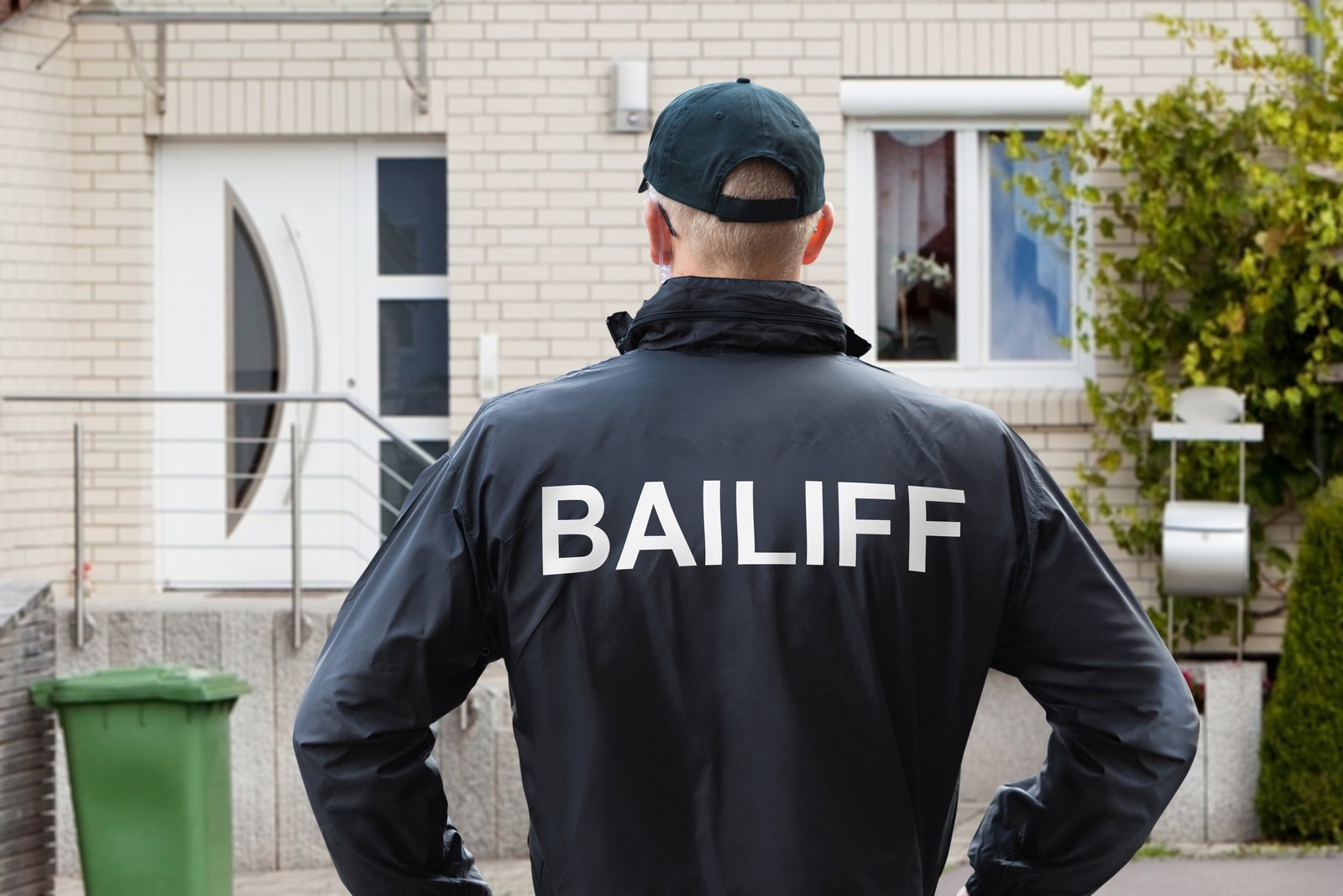If you’re struggling to keep up with your debts or expecting a bailiff visit, check out our consumer guide to understanding the different types of bailiffs and how they operate
What is a bailiff?
A bailiff is someone authorised to collect a debt on behalf of a creditor (someone you owe money). Since 2014, bailiffs have also been known as enforcement agents.
Your home or business might receive a visit from the bailiffs if you have unpaid debts such as parking fines, Council Tax bills, or court judgements. Bailiffs might also pay you a visit to serve you with court documents or a summons. Even so, bailiffs shouldn’t turn up announced; you should receive a letter of intention to visit in advance. This notice can give you time to seek legal or impartial debt advice.
Types of Bailiffs
There are several different types of bailiffs and each one serves a different purpose. Some bailiffs will be officers of the court, others are self-employed, and some will be employed by private debt collection companies.
There are four main types of bailiffs:
Certified Enforcement Agents
Certified Enforcement Agents – also known as Civil Enforcement Agents – are the most common type of bailiff. They aren’t officers of the court, but they are certified to enforce certain debts. This certification allows them to enforce debts like Council Tax arrears, parking offences, and unpaid business rates. Before they can legally take control of your goods, Certified Enforcement Agents must hold a relevant qualification, have a DBS check, and be free from any insolvency issues and court judgements. These details will be re-checked every two years.
High Court Enforcement Officers
High Court Enforcement Officers are employed by the High Court to enforce judgements known as High Court Writs. This means that they can enforce orders of possession to recover property, orders to repossess specific goods, and employment tribunal and ACAS awards. They may also be tasked with enforcing County Court Judgements over £600 that have been transferred to the High Court.
County Court and Family Court Bailiffs
County Court Bailiffs are also employed by the courts and tasked with enforcing small claims warrants (typically under £600) and bank repossessions. Family Court Bailiffs specialise in court orders related to family matters. These may include serving injunctions and divorce papers or collecting child support debts.
Approved Enforcement Agents
Approved Enforcement Agents – also called Civilian Enforcement Officers – are bailiffs authorised by Magistrates’ Courts to enforce fines and warrants for arrest that they have issued.
What’s the difference between bailiffs and debt collectors?
The main difference between bailiffs and debt collectors is that bailiffs must be certified and follow certain legal procedures. You should receive an enforcement notice at least seven days before a bailiff visits your home and they must be able to show evidence of their identity and their authority to enter your home if you request it. Certified bailiffs should also appear on the Register of Certificated Bailiffs.
Debt collectors don’t have the same rights or legal powers as bailiffs. In fact, a debt collector will be committing fraud if they pretend to be a certified bailiff. Typically, debt collectors will work for the creditor or a debt collection agency (who may have bought your debt from the original creditor). They are not allowed to take your property and have no right to enter your home. If you ask a debt collector to leave the premises, they must do so.
How can I check a bailiff’s identity?
If you’re unsure whether a bailiff is who they claim to be, there are many ways to check their identity. You don’t need to let them inside your home to carry out these checks, you can ask for proof to be put through the letterbox or shown at the window instead.
Bailiff identity checks can include:
- Ask to see physical proof such as their badge, ID card, or enforcement agent certificate
- Find out what company they’re from
- Ask for the telephone number for that company
- Ask them to provide a detailed breakdown of the money owed
When can bailiffs enter my property?
When a bailiff visits your home or business to enforce a debt, they’ll usually ask you to pay the money owed. If you can’t pay the full amount, you might be able to set up a payment plan to repay the debt in instalments. They may also try to make a list of your goods known as a controlled goods agreement. If you don’t make payments after the first bailiff visit, they could return to remove the goods listed. Bailiffs may also have the right to remove goods straightaway or make them inaccessible to you (i.e., locking them in your garage).
However, you don’t have to let the bailiff enter your property. Bailiffs can’t force entry unless certain conditions are met, and they can also not try to enter through an open window or use a ladder to hop the fence.
Forced entry can only happen if all three of the following occur:
- They’ve taken control of the goods inside your home
- You made a controlled goods agreements but have broken it by missing at least one payment
- They’ve given you two days’ notice that they’re going to inspect or take goods
What can bailiffs take from my home?
Even if bailiffs do meet the conditions required to seize goods from your home, there are still rules around what they can and can’t take. Generally, bailiffs can only take items that they can physically touch and are owned (or part-owned) by you. They must not take any essential household items such as your cooker, fridge, bed, heaters, and medical equipment. Bailiffs should also not take your pets, any goods purchased under a hire purchase contract (like a car on finance), and any items that are essential for you to do your job.
Help dealing with bailiffs
If you’ve received notice of a bailiff visit and don’t know what to do next, consider seeking debt advice. An expert debt advisor could support you to negotiate a debt reduction, set up an affordable payment plan, or find a debt management solution that could help prevent a future bailiff visit. The options available to you might include requesting breathing space, setting up an informal debt management plan, or entering an IVA (which will prevent bailiffs from attempting to enforce your debt).
Our friendly team of experts is here to help. Call us on 0161 660 7255 or send us a message here







